Clancy Tucker's Blog, page 212
August 26, 2016
27 August 2016 - GREAT WISDOM & HUMOUR

GREAT WISDOMAND HUMOUR
G'day folks,
Yep, time for some wise quips and a touch of humour to make you smile.
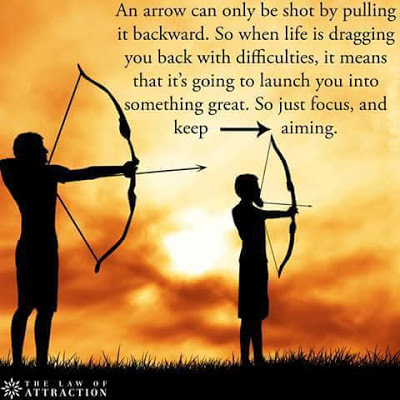


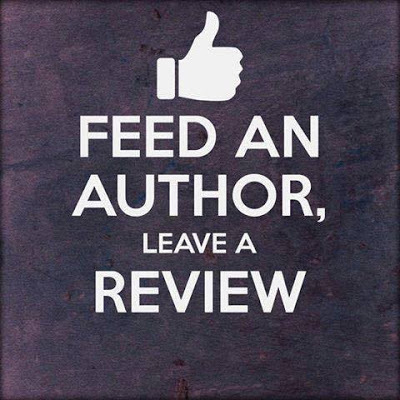

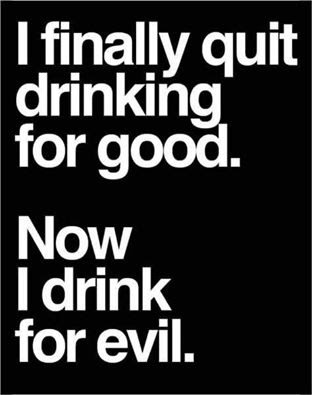
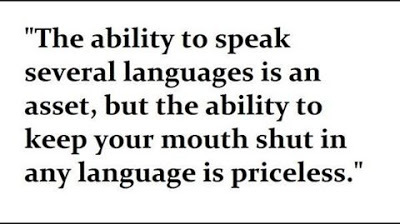



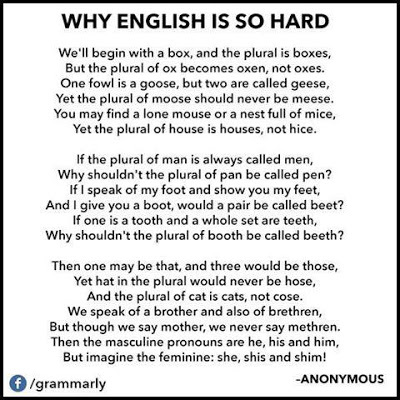


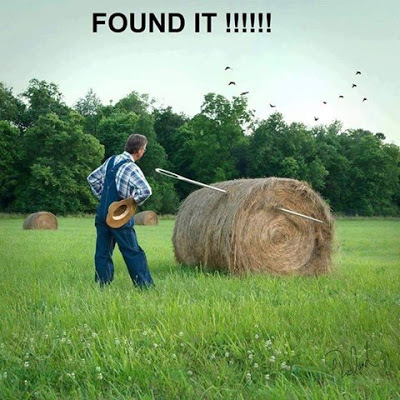

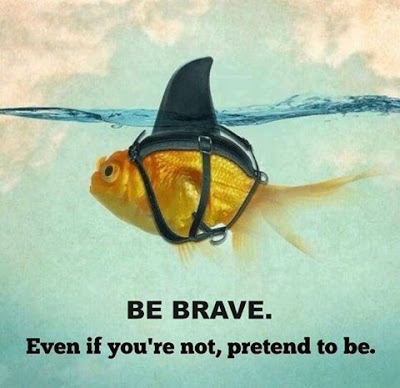
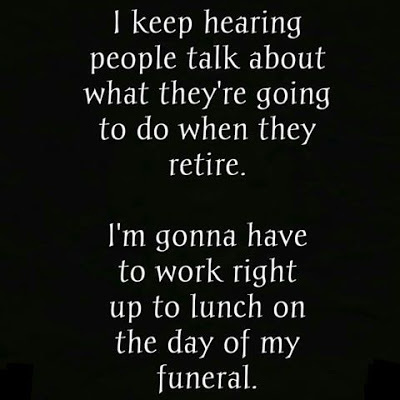
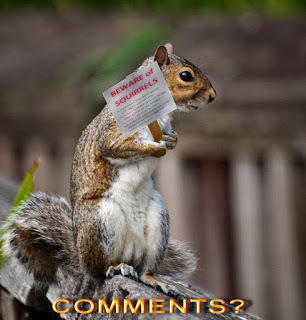
Clancy's comment: Hope you enjoyed most of these. I sure did.
I'm ...


Published on August 26, 2016 14:37
August 25, 2016
26 August 2016 - LINDA LOFTS-WILES - Guest Author
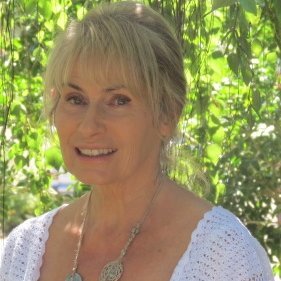
LINDA LOFTS-WILES- Guest Author -
G'day folks,
Today, I interview an emerging author from Australia.
Welcome, Linda ...
1. TELL US A LITTLE ABOUT YOURSELF AND YOUR WRITING JOURNEY. My writing journey began many years ago in England on my last day at school. The headmistress presented me with Jules Verne’s ‘Journey to the Centre of the Earth’ for the many stories I wrote. It was unexpected.
2. WHEN AND HOW DID YOU BECOME A WRITER?
It was not until many years later that I started writing historical romance stories but after many rejection slips, I again stopped.
3. WHAT TYPE OF PREPARATION DO YOU DO FOR A MANUSCRIPT? DO YOU PLAN EVERYTHING FIRST OR JUST SHOOT FROM THE HIP?
I use white boards to plot my story until the characters eventually take over and the words just flow.
4. WHAT DO YOU ENJOY MOST ABOUT BEING A WRITER?
Off world following my Alien friends, good and bad, where I have a certain amount of control, whereas human life is very controlled.
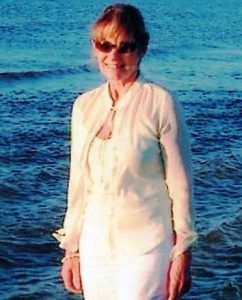
5. WHAT IS THE HARDEST THING ABOUT BEING A WRITER?
Being a writer is easy however, it takes time away from my family.
6. WHAT WERE YOU IN A PAST LIFE, BEFORE YOU BECAME A WRITER?
I worked in dept stores, raised a family, lived on a farm with horses, angoras, etc.
7. WHAT IS YOUR GREATEST WRITING ACHIEVEMENT?
Completing my first novel, ERETEISIA - Ultimate Sacrifice and receiving the first hard copy in my hand.
8. WHAT ARE YOU WORKING ON AT THE MOMENT?
I’m half way through the second book in the ERTEISIA trilogy.
9. WHAT INSPIRES YOU?
The Universe with its never-ending stories
10. WHAT GENRE DO YOU WRITE?
Science fiction/Fantasy.
11. DO YOU HAVE ANY TIPS FOR NEW WRITERS?
Don’t let rejection slips prevent you from writing. Persevere!
12. DO YOU SUFFER FROM WRITER’S BLOCK?
In the past, yes. Since writing ERTEISIA, no.
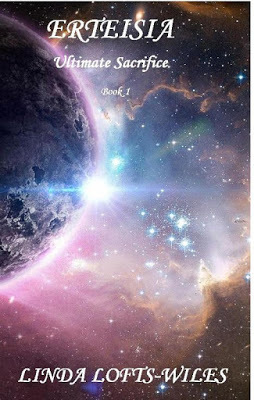
13. DO YOU HAVE A PREFERRED WRITING SCHEDULE?
No, I write anytime that’s available. Once I begin, I have to be ‘pulled away’ for what I call the human necessities of life!
14. DO YOU HAVE A FAVOURITE WRITING PLACE?
Front room looking out over my picturesque garden, and the forest of trees in the park.
15. WHAT IS YOUR GREATEST JOY IN WRITING?
I can create and enjoy the adventure.
16. WHO IS YOUR FAVOURITE AUTHOR AND WHY?
Diana Gabaldon. Her descriptive words in action scenes are brilliant - she holds nothing back. I admire her brilliance.
17. WHAT’S THE GREATEST COMPLIMENT YOU EVER RECEIVED FROM A READER?
ERTEISIA, along with a series, would make great movies.
18. WRITERS ARE SOMETIMES INFLUENCED BY THINGS THAT HAPPEN IN THEIR OWN LIVES. ARE YOU?
I guess in some instances, a reflection of my life creeps in.
19. OTHER THAN WRITING, WHAT ELSE DO YOU LOVE?
Husband, family, and time in the garden, and nearby parks. I also love to travel, both in and out of Australia.
20. DID YOU HAVE YOUR BOOK / BOOKS PROFESSIONALLY EDITED BEFORE PUBLICATION?
After 15 edits, I reluctantly handed it to a professional editor. Next book will go to the professionals much earlier.
21. DESCRIBE YOUR PERFECT DAY.
To know all is well with my family, and warm sun on my body after a satisfied few hours writing.
23. IF YOU WERE STUCK ON A DESERT ISLAND WITH ONE PERSON, WHO WOULD IT BE AND WHY?
My husband, because he can swim, fish, cook and make me laugh!
24. WHAT WOULD YOU SAY IF YOU HAD THE CHANCE TO SPEAK TO WORLD LEADERS?
Action and reaction are opposite and equal! Cease hoarding money and ease the poverty around the world.
25. WHAT ARE YOUR PLANS FOR THE FUTURE?
Complete my trilogy and travel. Who knows, there could even be a fourth book while I’m travelling!
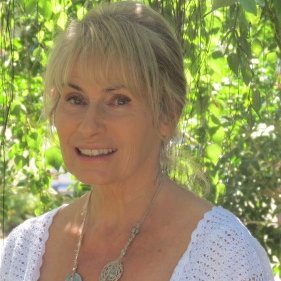
26. DO YOU SEE YOURSELF IN ANY OF YOUR CHARACTERS?
I see myself in all the characters I create.
27. DOES THE PUBLISHING INDUSTRY FRUSTRATE YOU?
Confuse, is the word I would use.
28. DID YOU EVER THINK OF QUITTING?
I wouldn’t say ‘quit,’ I would say, “Damn you Orion get out of my head - or I’ll quit!”
29. WHAT WAS YOUR FAVOURITE MANUSCRIPT TO WRITE? WHY?
ERTEISIA – Ultimate Sacrifice. Off world has more to offer when I open my mind.
30. HOW WOULD YOU DEFINE ‘SUCCESS’ AS A WRITER.
Completing what you start and having the public love the plot and characters and buy it.
31. WHAT SHOULD READERS WALK AWAY FROM YOUR BOOKS KNOWING? HOW SHOULD THEY FEEL?
There’s more to life than we realize. Never, ever give up on your inner strength and belief - dream big!
32. WOULD YOU LIKE TO HAVE YOUR BOOKS MADE INTO MOVIES? EVER WRITTEN A SCREENPLAY?
I have never written a screenplay. My dream is to see the ERTEISIA trilogy as movies.
33. HOW MUCH THOUGHT GOES INTO DESIGNING A BOOK COVER?
A lot of work and frustration.

35 WHAT’S YOUR ULTIMATE DREAM?
To be successful in all ventures
36. WRITING IS ONE THING. WHAT ABOUT MARKETING YOU, YOUR BOOKS AND YOUR BRAND? ANY THOUGHTS?
I don’t relish this side of the business; however, Geoff is in his element.
37. ARE YOUR BOOKS SELF-PUBLISHED?
Yes, on Kindle and Amazon Books.
38. DESCRIBE YOURSELF IN FIVE WORDS.
Adventurous, stubborn, perfectionist, loving, caring
39. WHAT IS THE TITLE OF THE LAST BOOK YOU READ? GOOD ONE?
ERTEISIA – Ultimate Sacrifice
40. WHAT WOULD BE THE VERY LAST SENTENCE YOU’D WRITE?
The Universe of Universes will always be...
41. WHAT WOULD MAKE YOU HAPPIER THAN YOU ARE NOW? CARE TO SHARE?
To realise my dream of sharing through my books wisdom gained from experience.
42. ANYTHING YOU’D LIKE TO ADD?
I’ve integrated truth with fiction, truths that ‘popped up’ as I researched certain places. The reader will, I believe, see the clues within the story.

WEBSITE
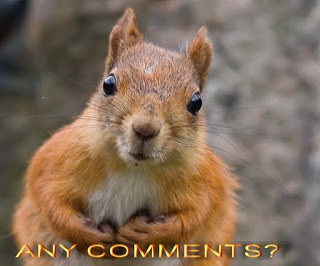
Clancy's comment: Thank you, Linda. Keep going. This is a tough business.
I'm ...


Published on August 25, 2016 15:22
August 24, 2016
25 August 2016 - WINSTON CHURCHILL WISDOM
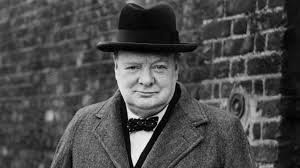
WINSTON CHURCHILL WISDOM
G'day folks,
Here are some famous quotes from a well known Prime Minister. Sir Winston Leonard Spencer-Churchill, KG, OM, CH, TD, PC, DL, FRS, RA was a British statesman who was the Prime Minister of the United Kingdom from 1940 to 1945 and again from 1951 to 1955.
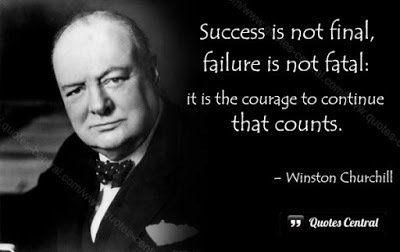
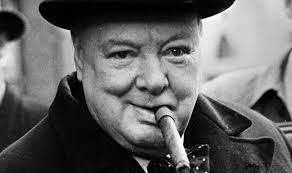
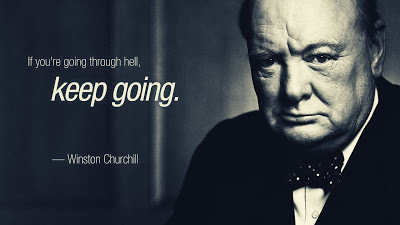
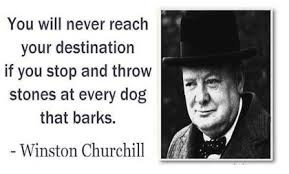
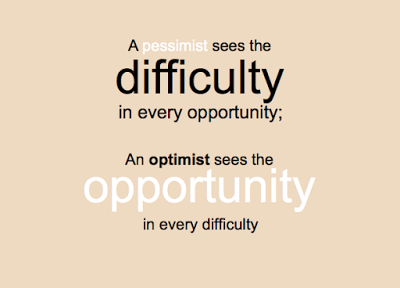
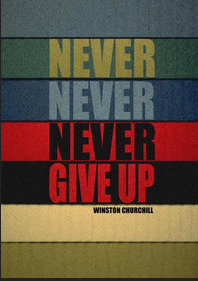

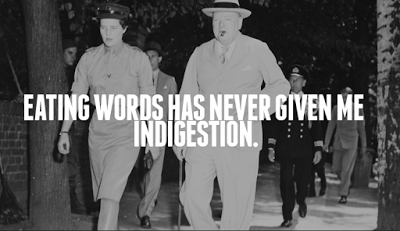
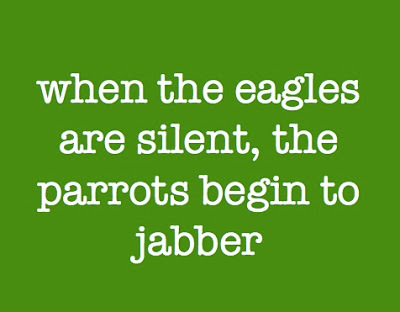
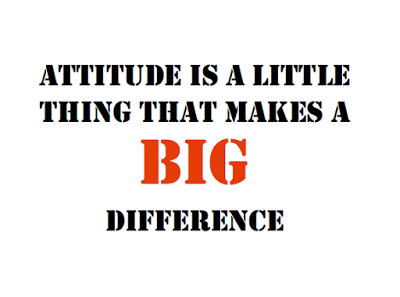

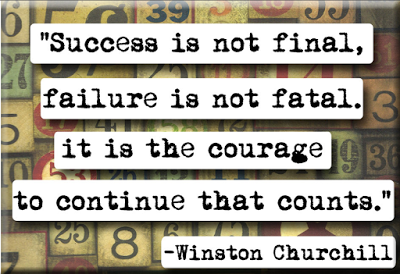

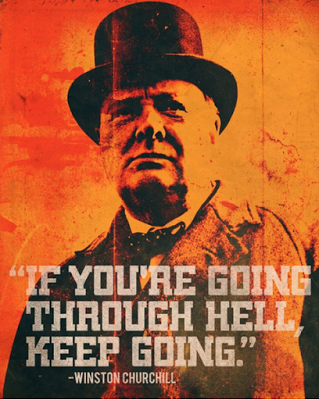
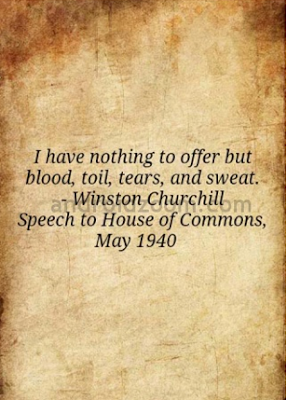
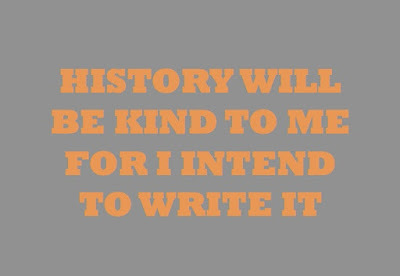

Clancy's comment: There ya go, folks. He was a man many have quoted.
I'm ...
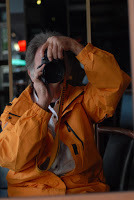

Published on August 24, 2016 14:39
August 22, 2016
23 August 2016 - FAMOUS STORYTELLERS

FAMOUS STORYTELLERS
G'day folks,
Welcome to a few tidbits about some famous storytellers.
Long ago, in primitive times, stories were passed on by word of mouth. Since the invention of printing, stories have been part of the world's literature. The fairy tales, legends, and fables we know today have often come from far in the past. Lewis Carroll, the author of Alice's Adventures in Wonderland, called stories “love gifts.”
Aesop's Fables
Aesop was a storyteller who lived in ancient Greece. Animals are the main characters in his fables, which show how a problem is solved and a moral or lesson is learned. Aesop's stories include “The Boy Who Cried Wolf” and “The Tortoise and the Hare.” They were first written down around 300 B.C.

Andersen's Fairy Tales
Hans Christian Andersen lived in Denmark in the nineteenth century. He was considered an ugly child and had no friends, so he lived in a dream world, reading about the lives of famous men who had risen from poverty to fame. At age 14, when his father died, he moved to Copenhagen and tried to become an actor. When he was still unsuccessful at 30, he decided to try writing down the tales he had been telling children as he traveled around the countryside. Some of his stories are “The Emperor's New Clothes,” “The Ugly Duckling,” and “The Princess and the Pea.”
Arabian Nights
According to legend, a queen named Scheherazade told these stories to Sultan Schahriah to save her life. Each night she told him tales, stopping at the most exciting part so that he would have to wait until the next night to learn what happened. After 1,001 nights, the sultan granted Scheherazade her life. She became his wife, and her stories were recorded for all the world to read. They include “Ali Baba and the Forty Thieves,” “Sinbad the Sailor,” and “Aladdin and the Magic Lamp.”
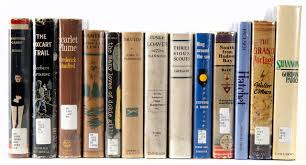
Grimm's Fairy Tales
Jacob and Wilhelm Grimm were brothers who lived in Germany. After their parents died, the brothers traveled about the country and gathered stories. When they published these tales in the early 19th century, they became famous. Their collection includes “Hansel and Gretel” and “Snow White and the Seven Dwarfs.”
The Legend of King Arthur
The story of King Arthur and his Knights of the Round Table was published by Sir Thomas Malory in 1469, while he was in a London jail. These tales had delighted European audiences for centuries before Malory brought them together in one book.
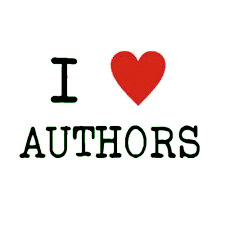
Perrault's Fairy Tales
Charles Perrault lived in France in the seventeenth century. When he retired from government service, he began to take popular folk tales and change them into children's fairy tales with morals. He was very successful because he was one of the first French authors to write especially for children. His most famous fairy tales are “Sleeping Beauty,” “Tom Thumb,” and “Puss in Boots.”
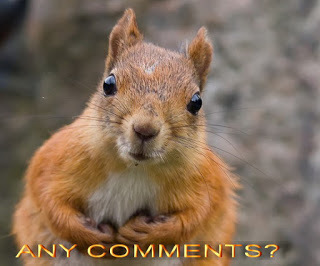
Clancy's comment: I wonder how many books from modern authors will be read in years to come. I guess we won't be around to find out, eh?
I'm ...


Published on August 22, 2016 14:39
August 21, 2016
22 August 2016 - KIDS FROM ETHIOPIA
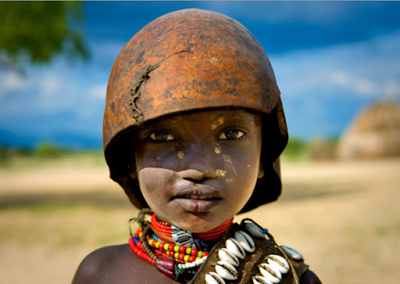
KIDS FROM ETHIOPIA
G'day folks,
Here is another post in the kids around the world series. Ethiopia, in the Horn of Africa, is a rugged, landlocked country split by the Great Rift Valley. With archaeological finds dating back more than 3 million years, it’s a place of ancient culture. Among its important sites are Lalibela and its 12th-13th century rock-cut Christian churches, and Aksum, the ruins of an ancient city with obelisks, tombs, castles and Our Lady Mary of Zion church.
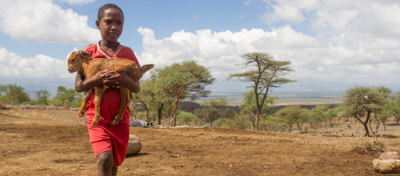
Location: East AfricaSchool: Because much of Ethiopia is rural, kids who attend school may have to walk several miles each way.Unlike in most African nations, school in Ethiopia is free. However, many kids work to help support their families. Less than half are still enrolled by grade 5.
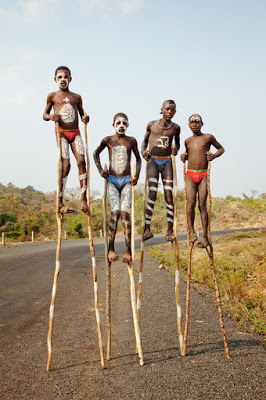
Play: Gebeta, a game of strategy, has been popular for hundreds of years. It is played using seeds or pebbles and a board with rows of cups.Many kids learn the lively and irresistible eskista dance, which is performed almost entirely with the shoulders. Soccer is the most popular sport.
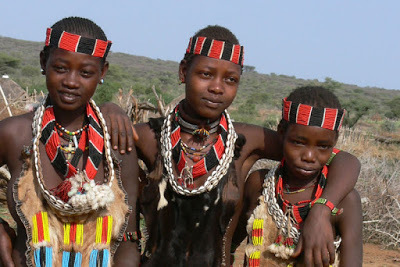
Family: Most families live in rural areas. It is common for an extended family to live in a cluster of houses and farm together.Traditionally, parents and children do not share a last name. Most kids take their father’s first name as their last name.
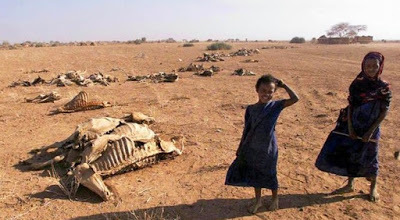
Favorite foods: Injera, a pancake-like bread that is used to scoop up spicy dishes such as doro wat (chicken stew) and mesir wat (lentil stew). Did you know? Ethiopia is the only African country that was never colonized. Formerly called Abyssinia, it was the setting of powerful ancient kingdoms.

Clancy's comment: This is a very poor, and very ancient country. And, I mention it in some detail in my next book - 'Bold Journey'.
I'm ...


Published on August 21, 2016 13:56
August 20, 2016
21 August 2016 - MOVING PICTURES
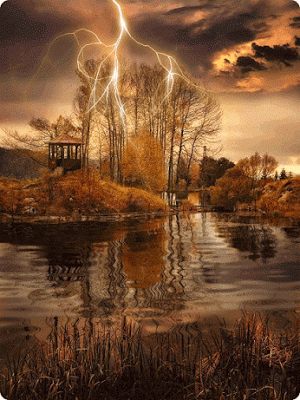
MOVING PICTURES
G'day folks,
Time again to admire some very clever work, and some moving pictures.
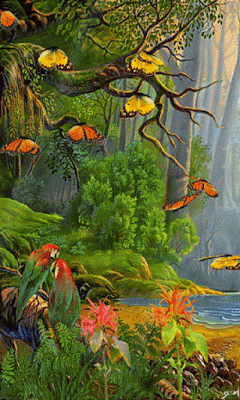
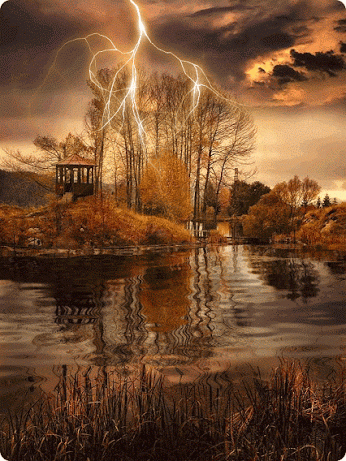


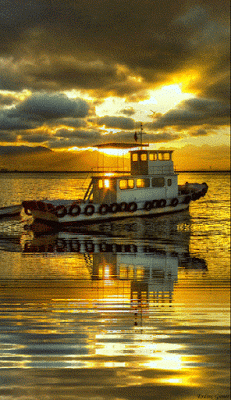

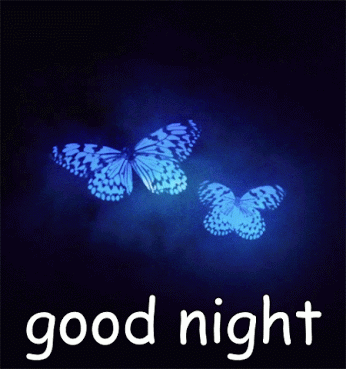
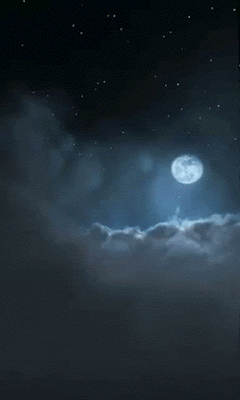






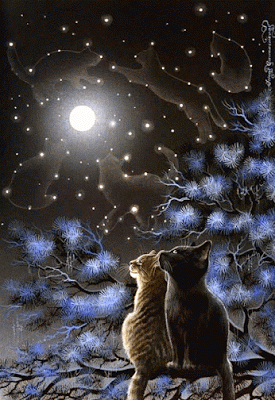

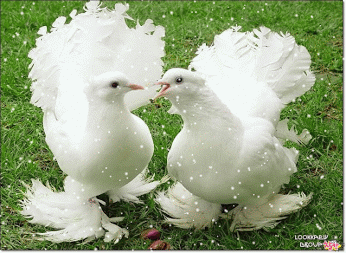

Clancy's comment: Typical cat, eh?
I'm ...


Published on August 20, 2016 13:37
August 19, 2016
20 August 2016 - KEN FARMER - Guest Author
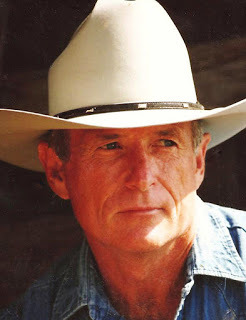
KEN FARMER
- Guest Author -G'day folks,
Here is my interview with a former Marine, actor and now award-winning author.
Welcome, Ken ...
1. TELL US A LITTLE ABOUT YOURSELF AND YOUR WRITING JOURNEY.
My writing is an off-shoot of 40 plus years as a professional Film and TV actor. I degreed in Drama while attending Stephen F. Austin State University in Nacogdoches, Texas on a full football schlorship (American). Didn't utilize the drama training until I was around 32. I was too busy with my cattle/horse ranch and drilling oil wells in Texas. An agent in Dallas asked if I would represent her agency for a Dairy Queen commercial because she didn't have an experienced rider in her agency, plus she thought I had a 'good look'. LOL.
Turns out, I got the part and introduced the Belt Buster hamburger for Dairy Queen. I just thought, 'They're gonna pay me this kind of money to sit on a horse and eat a hamburger...what the hell. That was some 44 years ago, a slew of commercials and a rasher of movies and TV shows. Who knew?
2. WHEN AND HOW DID YOU BECOME A WRITER?
Like most actors, I started tinkering around writing screen and teleplays back in the '80s. Wrote and directed a movie, “Rockabilly Baby”, in 2008 and a buddy I knew from the Marine Corps (John Eastman) called me one day in 2011, from Pennsylvania and said, “Hey, Kenny, I wrote a novel.” I answered, “Hell, good for you John.” He asked, “Can you guys turn it into a screenplay?” I said, “Sure, send it down.” He sent a 350,000 word novel... Well, long story short, my writing partner, Buck Stienke, and I adapted it to a 125 page screenplay in about 10 weeks (fall of 2011). When we finished, we looked at each other and said, “Hell, we can write a novel.”
Three months later we finished our first novel, “Black Eagle Force: Eye of the Storm.” Buck and I had both been in the military, he graduated from the Air Force Academy and flew fighter jets and I had been in the Marine Corps so it was logical we would write military/action stories. Our first novel won Best Adult Fiction at the first Book Festival we attended. Son of a gun.
We finished our second novel, “Black Eagle Force: Sacred Mountain”, and decided to write a historical fiction western based on a screenplay I had written back in the '80s for ourthird. It became “The Nations” featuring the first black Deputy US Marshal west of the Mississippi, Bass Reeves. It won the Laramie Award for Best Classic Western of 2014.
That was five years and fifteen novels ago...almost one and a half million words. Who knew?
3. WHAT TYPE OF PREPARATION DO YOU DO FOR A MANUSCRIPT? DO YOU PLAN EVERYTHING FIRST OR JUST SHOOT FROM THE HIP?
I'm strictly a 'pantser'. My acting style is 'Organic', so it was natural my writing style would be also. I will have a general story line, meaning I know where I'm starting and where I'm going to end up...but have no idea in hell how I'm going to get there when I start. I create my characters with full backstories, and then get the hell out of their way and let them tell the story. Sometimes they surprise even me...Wow, didn't see that coming.
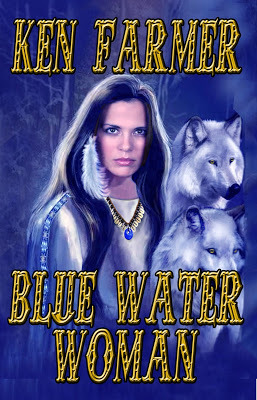
4. WHAT DO YOU ENJOY MOST ABOUT BEING A WRITER?
I suppose I like the creative freedom. I was teaching a writing workshop last weekend and one guy, an attorney by trade, asked where I got my story ideas. I laughed and said, “Everywhere.” I constantly observe and research.
In the process of researching Bass Reeves 32 year career as a Federal officer, I ran across an interesting character...Deputy US Marshal F.M. Miller. The only female Deputy US Marshal in the Indian Nations and nobody had written about her. That's like turning a twelve year old kid loose in a candy store. The single newspaper article about her from 1891 didn't even give her name...just her initials, F.M. So, I used a little literary license and named her, Fiona Mae Miller. The Fort Smith Elevator, in its November 6, 1891, issue described “Mrs. Miller…as a dashing brunette of charming manners…” The same article described her as “…an expert shot and a superb horsewoman, and brave to the verge of recklessness.”
That was like pouring gasoline on a fire. I added her to the fifth book in The Nations series, “Bass and the Lady”. Book six is sort of a 'spin off' with Fiona Mae Miller having her own story in “Lady Law”. My WIP is the next novel in the series, “Blue Water Woman” and who knows from there.
5. WHAT IS THE HARDEST THING ABOUT BEING A WRITER?
The Edit. Writing is a piece of cake, except for sometimes finding enough time to write what your muse lays on you. But, I'd rather be whipped with a wet rope than to edit, but it has to be done. I find the best way is I get a beta reader, we link up with Skype and go through the manuscript line by line outloud. It sounds right or it doesn't.
6. WHAT WERE YOU IN A PAST LIFE, BEFORE YOU BECAME A WRITER?
If you mean the one I just lived...I was an actor which I have found to be an enormous asset. My acting training and experience allows me to create each character with their own voice. And when I edit, I play each character exactaly as I do when I record audio books.
7. WHAT IS YOUR GREATEST WRITING ACHIEVEMENT?
Aside from winning several awards, I think just the fact of discovering I could write at the age of 69 and then writing...so far...fifteen novels.
8. WHAT ARE YOU WORKING ON AT THE MOMENT?
Novel number 16, “Blue Water Woman”. Fiona Miller is drawn into the mystical world of the Native American's belief in shapeshifting.
9. WHAT INSPIRES YOU?
Finishing a novel and seeing it become a best seller.
10. WHAT GENRE DO YOU WRITE?
Military/Action/Techno, Historical Fiction Western and SyFy.

11. DO YOU HAVE ANY TIPS FOR NEW WRITERS?
Write, write, write.
12. DO YOU SUFFER FROM WRITER’S BLOCK?
What's Writer's Block?
13. DO YOU HAVE A PREFERRED WRITING SCHEDULE?
I find my creativity is most active in the mornings. I edit or record audio books in the afternoon.
14. DO YOU HAVE A FAVOURITE WRITING PLACE?
Not really. I guess I prefer my computer in my office in my home. It also serves as my DAW (Digital Audio Workstation)
15. WHAT IS YOUR GREATEST JOY IN WRITING?
Finishing the edit in my WIP.
16. WHO IS YOUR FAVOURITE AUTHOR AND WHY?
Edgar Rice Burroughs. Here's my favorite quote from him: "I have been successful probably because I have always realized that I knew nothing about writing and have merely tried to tell an interesting story entertainingly." - Edgar Rice Burroughs
Just tell the damn story. There is no right or wrong...just interesting and less interesting.
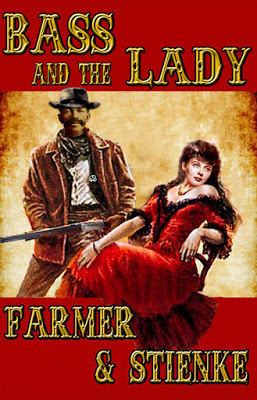
17. WHAT’S THE GREATEST COMPLIMENT YOU EVER RECEIVED FROM A READER?
“I feel like I can talk to your characters.”
18. WHAT WAS THE WORST COMMENT FROM A READER?
“Poorly written, artless literary work.” – That book also won the Laramie award for Best Action Western – 2013. Can't please everyone.
19. WRITERS ARE SOMETIMES INFLUENCED BY THINGS THAT HAPPEN IN THEIR OWN LIVES. ARE YOU?
Just general experience and the fact my mother taught me to be a voracious reader...I still am.
20. OTHER THAN WRITING, WHAT ELSE DO YOU LOVE?
Teaching. I've taught acting, writing and VO (voice over) for almost 20 years.
21. DID YOU HAVE YOUR BOOK / BOOKS PROFESSIONALLY EDITED BEFORE PUBLICATION?
Had the first one professionally edited...not worth the conflict. I prefer beta readers...people who read for entertainment.
22. DESCRIBE YOUR PERFECT DAY.
Getting a phone call or email saying one of my novels is #1 on the New York Times Best Seller list.
23. IF YOU WERE STUCK ON A DESERT ISLAND WITH ONE PERSON, WHO WOULD IT BE? WHY?
If he were anyone, I would say Edgar Rice Burroughs.
24. WHAT WOULD YOU SAY IF YOU HAD THE CHANCE TO SPEAK TO WORLD LEADERS?
Get your heads out of your asses.
25. WHAT ARE YOUR PLANS FOR THE FUTURE?
Keep writing. I won't live long enough to write all the stories I have bouncing around in my head.
26. WHAT ARE YOUR VIEWS ON BOOK TRAILERS? DO THEY SELL BOOKS?
Not sure yet. I've done several and so far I can't tell the difference.
27. DO YOU SEE YOURSELF IN ANY OF YOUR CHARACTERS?
I usually pattern one of the characters after me...you get to figure out which.
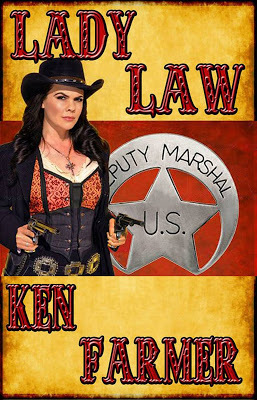
28. DOES THE PUBLISHING INDUSTRY FRUSTRATE YOU?
Not really.
29. DID YOU EVER THINK OF QUITTING?
No. My dad always told me, “Once a quitter...always a quitter.”
30. WHAT WAS YOUR FAVOURITE MANUSCRIPT TO WRITE? WHY?
I don't write manuscripts...I write stories. My favorite is always the one I'm currently working on.
31. HOW WOULD YOU DEFINE ‘SUCCESS’ AS A WRITER.
When your fan base continually ask, “When is the next one due out?”
32. WHAT SHOULD READERS WALK AWAY FROM YOUR BOOKS KNOWING? HOW SHOULD THEY FEEL?
Wow, I was entertained.
33. WOULD YOU LIKE TO HAVE YOUR BOOKS MADE INTO MOVIES? EVER WRITTEN A SCREENPLAY?
Been there, done that. I started writing screen/teleplays. Prefer novels.
34. HOW MUCH THOUGHT GOES INTO DESIGNING A BOOK COVER?
I usually do my cover before I write the book. It either looks right or it doesn't. I trust my instincts. It has to jump at me.
35. WHAT’S YOUR ULTIMATE DREAM?
To have one of my stories made into a best selling movie and not be changed.
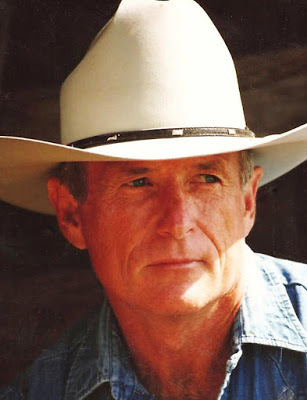
36. WRITING IS ONE THING. WHAT ABOUT MARKETING YOU, YOUR BOOKS AND YOUR BRAND? ANY THOUGHTS?
Marketing is the hard part. You have to devote at least twenty percent of your time to marketing.
37. ARE YOUR BOOKS SELF-PUBLISHED?
In a sense. My partner and I figured that if we could produce a movie, we could publish books. We publish our own and for numerous other authors through our company, Timber Creek Press.
38. DESCRIBE YOURSELF IN FIVE WORDS.
He does what he says.
39. WHAT PISSES YOU OFF MOST?
Liars.
40. WHAT IS THE TITLE OF THE LAST BOOK YOU READ? GOOD ONE?
“The Ka” by Mary Deal. Yes, loved it.
41. WHAT WOULD BE THE VERY LAST SENTENCE YOU’D WRITE?
I'm done.
42. WHAT WOULD MAKE YOU HAPPIER THAN YOU ARE NOW? CARE TO SHARE?
I don't think anything makes you happy. In my opinion, a person is just about as happy as they decide to be.
43. ANYTHING YOU’D LIKE TO ADD?
Just tell the damn story.

WEBSITE
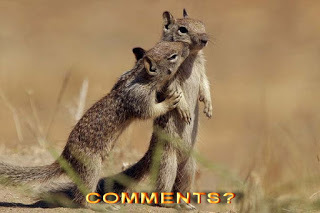
Clancy's comment: Thanks, Ken. Great answers. Loved your answer to question 24!
I'm ...


Published on August 19, 2016 13:52
August 18, 2016
19 August 2016 - DROUGHTS AND FAMINES
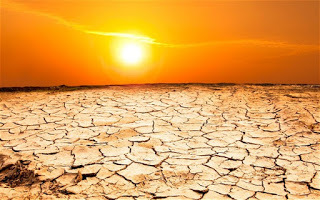
DROUGHTS & FAMINES
G'day folks,
Did you know that Australia is considered to be the driest continent on earth? It is, but other places also suffer from extreme weather conditions. What's a drought? Droughts are unusually long periods of insufficient rainfall. Here are some examples:
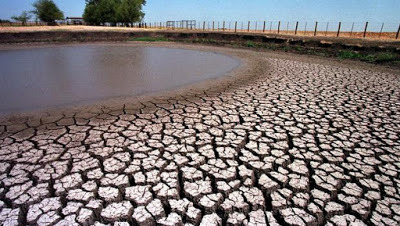
Since ancient times droughts have had far-reaching effects on humankind by causing the failure of crops, decreasing natural vegetation, and depleting water supplies. Livestock and wildlife, as well as humans, die of thirst and famine; large land areas often suffer damage from dust storms or fire.
What are famines? Famines are extreme shortages of food that cause people to die of starvation.
Where: EgyptWhen: 1200-02The Egyptian people relied on the annual flooding of the Nile River to leave soil for growing crops. After a shortage of rain, however, the Nile didn't rise. People were unable to grow food and began to starve to death. The final death toll was 110,000, due to starvation, cannibalism, and disease. Where: IrelandWhen: 1845-49Potatoes were the mainstay of the Irish diet. When the crop was struck by a potato blight (a fungus that killed the crop), farmers and their families began to starve. The grain and livestock raised in Ireland were owned by the English, and the laws of the time prevented the Irish people from importing grain to eat. This combination of plant disease and politics resulted in the Great Potato Famine, which killed 1.5 million people and caused a million more to move to America. Where: The Great Plains of the U.S.When: 1930sThe U.S. experienced its longest drought of the twentieth century. Peak periods were 1930, 1934, 1936, 1939, and 1940. During 1934, dry regions stretched solidly from New York and Pennsylvania across the Great Plains to the California coast. A great “dust bowl” covered 50 million acres in the south central plains during the winter of 1935–1936. Heavy winds caused the dry soil to be blown into huge clouds. Crops and pasture lands were ruined by the harsh dust storms, which also proved a severe health hazard.Where: Northern ChinaWhen: 1959-61The world's deadliest famine killed an estimated 30 million people in China. Drought was followed by crop failure, which was followed by starvation, disease, and cannibalism. News of the famine was not revealed to the rest of the world until 1981, some 20 years later.Where: Biafra, Africa (present-day Nigeria)When: 1967-69As a result of civil war, famine conditions killed an estimated 1 million people and left another 3.5 million suffering from extreme malnutrition.Where: EuropeWhen: 2003Drought conditions and a heat wave, one of the worst in 150 years, broke temperature records from London to Portugal, fueled forest fires, ruined crops, and caused thousands of deaths. (French fatalities estimated at more than 14,000.)
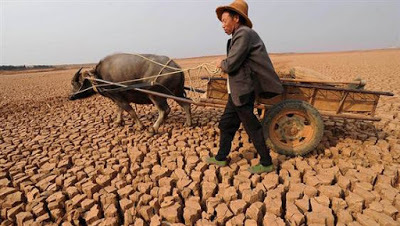

Clancy's comment: And, if you'd like to read a good book about one of the biggest droughts in Australian history, buy my book, 'Gunnedah Hero'. It's about a drought in 1910. And, if you want to read about a famine in Ethiopia, buy my next book - 'Bold Journey'. Out soon!
I'm ...


Published on August 18, 2016 14:53
August 17, 2016
18 August 2016 - THE HUMOUR OF KIDS

THE HUMOUR OF KIDS
G'day folks,
We all know that kids say funny things. Here is a sample:
1. Little girl with a wild imagination.
A few months back my wife showed a picture of herself to our 3-year-old daughter. In the picture my wife is about 7 years old. “Do you know who this is?”
Daughter: (gasps) “That’s me when I’m bigger!”
I love that she thought this was actually possible.
2. The simple logic of children.
My son when he was 6: “Dad, can we get a cat?” Me: “Your Mom is allergic to cats, so no.” My Son: “When Mom dies can we get a cat?” Me: “Sure.”

3. Sometimes, you have to set your mom straight.
This morning, my wife told my 3-year-old daughter that owls were nocturnal. My daughter responded, “Yes, owls are not turtles.”
4. A boy who is wise beyond his years.
My 4-year-old is currently singing a song he made up himself. He only has a chorus that goes “You can’t soooooolve Mississippi’s problems.”
5. Filter-less children.
Son and I are playing catch. I have a terrible throw that sails over his head. I say, “Sorry, that was a bad throw.” He stops, gives me a kind look and says, “No daddy, that was a wonderful throw.” Then takes 2 steps towards getting the ball. He stops again, turns back around and says, “When we say something nice, even when we don’t mean it at all, that’s called being polite, right?”

6. Any time a kid says “penis” it’s funny.
My four-year-old son was in the bathroom with the door closed.
I knocked and said, “What’s going on in there?”
His reply: “Nothing, it’s just me and my penis.”
7. A boy who simply loves nipples.
I was putting my son to bed when he was about 5, and after the bedtime story, right when I was tucking him in and turning out the light, he said “Nipples. I love ’em. What about you?” with this totally serious expression. It took major effort to remain composed and try to make it look like I was taking his question seriously.
8. A smart-ass little girl.
My little sister was at the doctor’s office for her annual check up–she had to be somewhere around 3. The nurse was asking all the standard coordination type questions–touch your nose, put your hands up, jump, etc. Being a healthy capable little devil, she’s doing everything fine. Then, the nurse says, “stand on one foot.” My little sister looks at the nurse, looks down, and hesitates. Then she walks over and stands on one of the nurse’s feet.

9. Why are kids so clever?
My cousin’s daughter’s response to “I love you,” was “I love me too” for the longest time.

Clancy's comment: Mm ... And I've heard them say smarter and ruder things than these.
I'm ...


Published on August 17, 2016 03:29
August 16, 2016
17 August 2016 - KENNETH GRAHAM
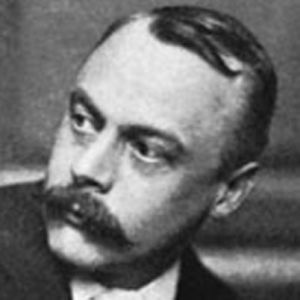
KENNETH GRAHAM
G'day folks,
Kenneth Grahame was a British writer, most famous for The Wind in the Willows, one of the classics of children's literature. He also wrote The Reluctant Dragon; both books were later adapted into Disney films.
He was born in Edinburgh, Scotland on 8 March. As a young child his mother died of Scarlet fever. His father was also an alcoholic so he was sent away to be looked after by elderly relatives.
He excelled as a student at St Edward’s School in Oxford. However, his uncle didn’t want to pay his fees for going to Oxford University. Therefore, Kenneth Graham moved to the Bank of England where he gained employment as a clerk. He later rose to be secretary and spent all his working life in the Bank of England.
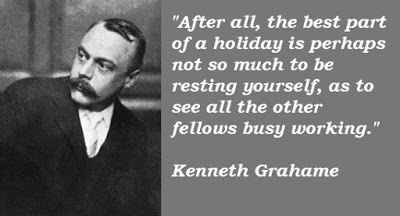
In his spare time, he began writing articles and and light stories. They were published in London Periodicals, they were mostly low key. Though a later book, The Reluctant Dragon became more widely known.
In 1899, he married Elspeth Thomson, who was considerably older than Kenneth. The marriage was not particularly close. Kenneth was not gregarious and was content in his own company. They had one son, Alistair, who suffered from various psychological conditions. Alistair later committed suicide whilst studying at Oxford University, aged 20.
Kenneth began writing stories for his son. The primary purpose was to be educational. For example, one of the main characters in The Wind in the Willows, is the rather head strong and arrogant Toad of Toad Hole. His arrogance leads to his downfall:
“‘Glorious, stirring sight!’ murmured Toad, never offering to move. ‘The poetry of motion! The REAL way to travel! The ONLY way to travel!
Though we end up developing sympathy for the character as he learns from his misdeeds.
The book was first published in 1908 in England with illustrations by E.H.Shepard. The book gradually became a best seller, and captured the imagination of many children and adults. In 1929, A.A.Milne dramatized the book as Toad of Toad Hall and over the twentieth Century became a key part of children’s literature.
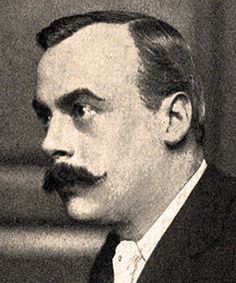
The Wind in the Willows is partly an expression of the authors desire to create a fantasy world free of some of the uncomfortable aspects of modern life. In discussing the work with Theodore Roosevelt, he mentioned the idyllic world he created was “Clean of the clash of sex.”
However, despite its success, Greene was never inspired to try a sequel. This was despite his early retirement in 1908. His early retirement was partly due to poor health and also disagreements with some of his employers.
He died in Pangborne, Berkshire in July 6, 1932.

Clancy's comment: Another author who died reasonably early.
I'm ...


Published on August 16, 2016 14:47



